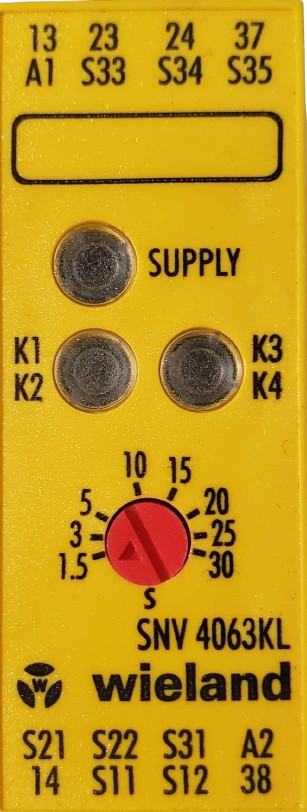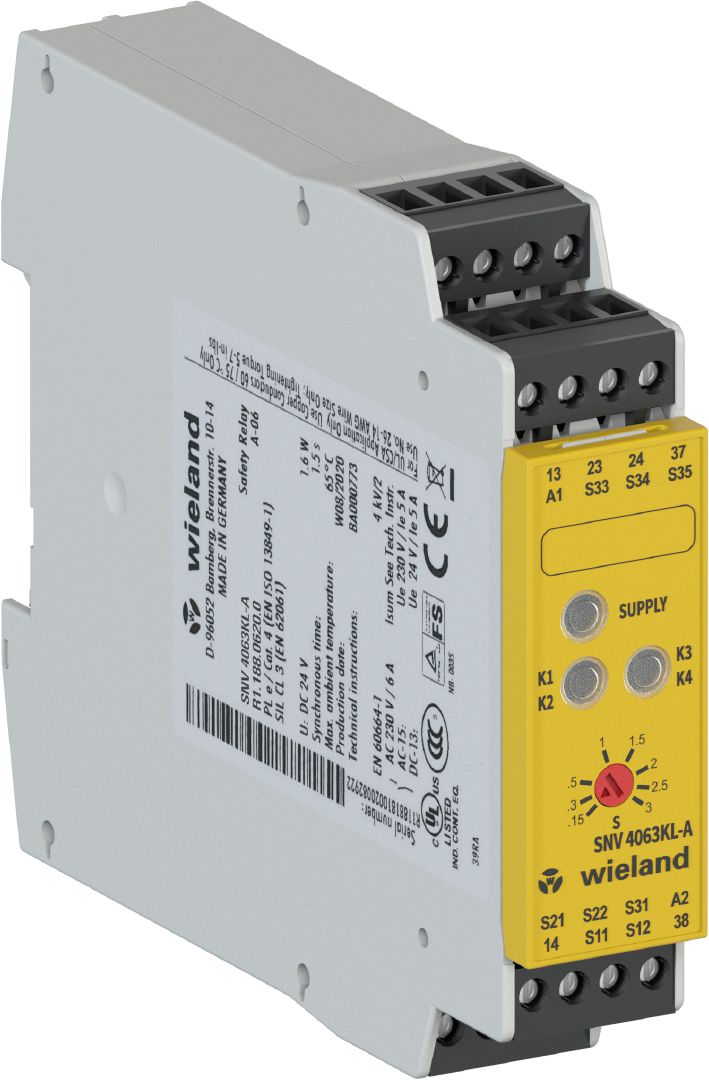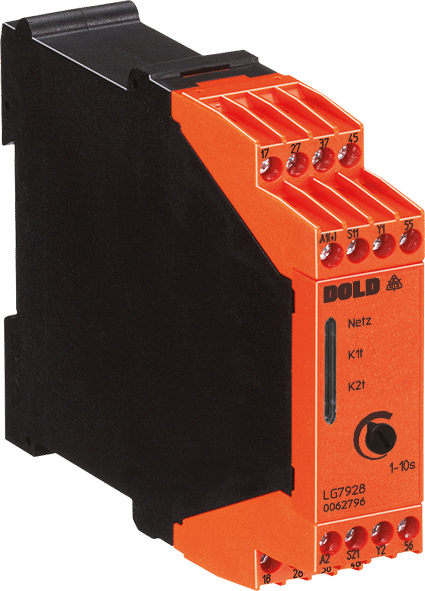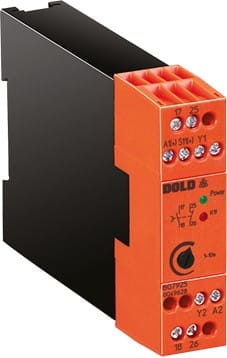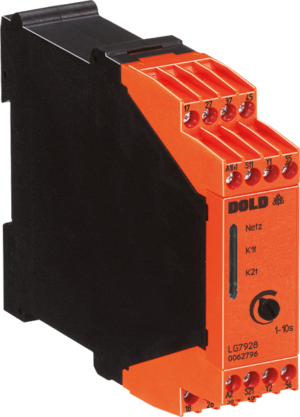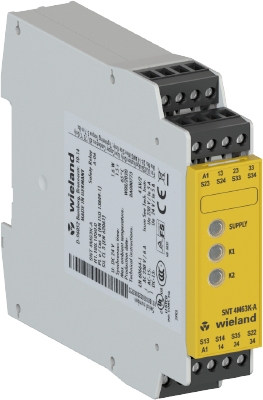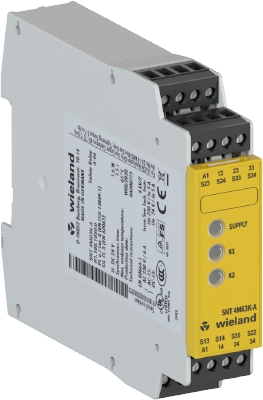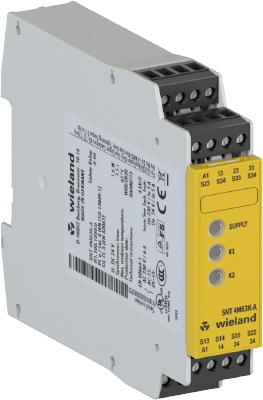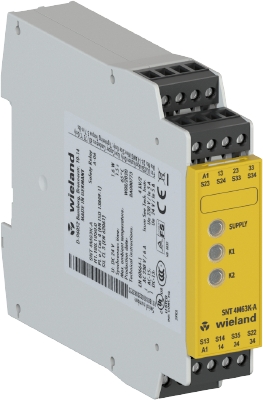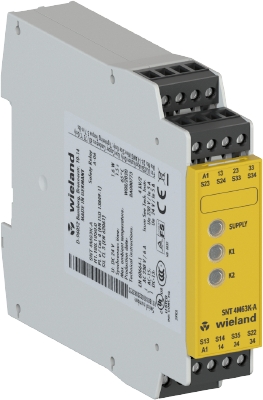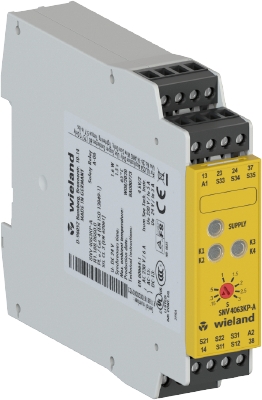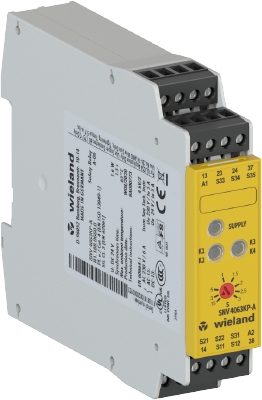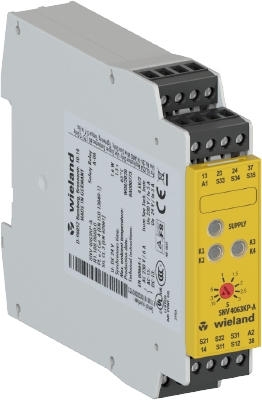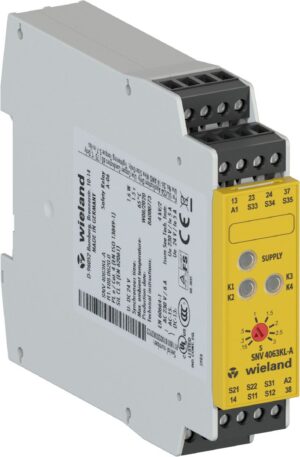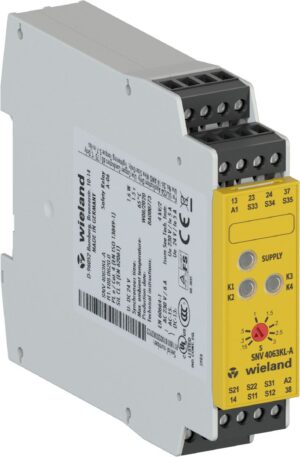Time Delay Relays for Enhanced Safety and Precision Control
Time delay relays are essential control components used to manage operations over specific time intervals. These relays initiate or terminate a circuit after a pre-selected…
Time delay relays are essential control components used to manage operations over specific time intervals. These relays initiate or terminate a circuit after a pre-selected timed interval, enabling precise control in electrical systems. For example, this would be critical in a system that required an extended ‘spool down’ time but utilised a trapped key system. For this system, common timing functions include delay-on, delay-off, and cyclic operations.
Key features include:
- Flexible modes of operation
- Output contacts for various control circuits and PLCs
- Visual indicators such as LEDs for status indication
- Compact setups suitable for panel mount integration
Historical Development and Evolution
Originally developed as electromechanical devices, early time delay relays used mechanical movements to control the delay type. As industrial automation systems advanced, so did the demand for more accurate and reliable timing functions. This led to the development of programmable timer relays and digital timer relays featuring LCD displays, adjustable time ranges, and electronic time delay functions.
Modern relays now offer:
- Enhanced electrical durability and mechanical life
- Greater control supply range
- Versatile input signal and switching signal options
Types of Timer Relays
Electromechanical Relays
Electromechanical relays operate using a standard relay mechanism driven by an internal timing circuit. These are widely used in industrial applications requiring high contact ratings and reliable switching, particularly in environments where temperature for operation varies. They often feature:
- Electromechanical output relay
- Conventional control relay design
- Long electrical life with minimal manual intervention
Solid-State Relays
Solid-state relays eliminate mechanical wear by using semiconductor components. Ideal for sensitive equipment and compact setups, they offer a high degree of protection and fast response times. Benefits include:
- Extended delay range
- Independent control without relay contacts
- Improved electrical signal consistency
Programmable Time Relays
These relays offer the most flexibility, allowing custom configuration possibilities via an LCD display. Users can select the type of delay required and program sequence of operations with precision. They are frequently used in:
- Conveyor belt systems
- Process control
- Lighting circuits
Electronic Timer Relays
Electronic relays combine the best of analog and digital technologies. Designed for adjustable time periods, they are suitable for commercial applications and harsh environments, offering features like:
- Dual time display
- Adjustable delay range
- Cycle timer relay and countdown timer relay capabilities
Functionality of Timer Relays
Delay-On and Delay-Off Operations
Delay-on timer relays activate after a specific delay when the application of voltage begins. Delay-off relays keep the circuit closed for a set time after the input signal is removed. These functions support:
- Accurate time intervals
- Proper timing sequences in control panels
- Workplace safety via controlled shutdowns
Multi-Function Timing Options
Many timer relays offer multiple modes of operation in a single unit type. From intermittent operation to continuous cycle functions, this versatility allows for use in diverse control applications, such as:
- Lighting control
- Emergency lighting
- Conveyor belt timing
Safety Mechanisms and Fail-Safe Strategies
Timer relays contribute to safety control systems by enabling continuous safety alerts and fail-safe behavior. Features supporting this include:
- Visual inspection via LED indicators
- High-quality products built for reliable switching
- Built-in terminal blocks for secure wiring
Industrial Applications
HVAC Systems
Timer relays regulate temperature control and fan cycles in HVAC systems. Their ability to manage on/off timing functions improves energy efficiency and equipment lifespan. Key roles include:
- Control of air handling units
- Time setting range adjustments for various climate conditions
- Delay operation to reduce current surges
Lighting Control Systems
In both commercial and industrial settings, timer relays manage the timing of lights turning on and off. This reduces energy costs and ensures proper operation in outdoor and emergency setups.
Applications include:
- Automated lighting schedules
- Countdown timer relay for timed shutdown
- Reliable switching for safety-critical areas
Safety and Emergency Mechanisms
Used in conjunction with safety control systems such as emergency stops, electronic key systems or limit switches, timer relays delay actions to ensure conditions are safe before powering machines or equipment. They prevent accidental restarts and provide a buffer for shutdown during critical errors.
Automation and Control Systems
In automation, timer relays are integrated into electrical control panels to manage complex sequences. They are critical in ensuring that each process stage receives the correct delay time, especially in:
- Industrial processes
- Conveyor belts
- Electrical installations
Advantages of Using Timer Relays
Precision in Time Management
Time delay relays allow for precise time intervals, supporting functions like pre-heating, delayed shutdown, or controlled restarts. This precision enhances both system stability and operational consistency.
Features enabling precision:
- Analog input or digital time setting
- Adjustable timing range for flexible solution design
- Visual and digital feedback for easy adjustments
Enhanced Efficiency and Reliability
With a comprehensive range of models, from electromechanical to programmable options, timer relays reduce the need for manual intervention and improve uptime. Benefits include:
- Reduced wear on mechanical parts
- Extended life cycle of electrical systems
- Preferred manufacturers offering extensive selection for all voltage ratings and delay types
Selecting Timer Relays
Selecting the ideal timer relay depends on your required control type, delay mode, and contact type. Whether you’re managing simple start-stop functions or complex automation sequences, relays with multi-mode capabilities offer the flexibility to adapt across various industrial and commercial applications.
